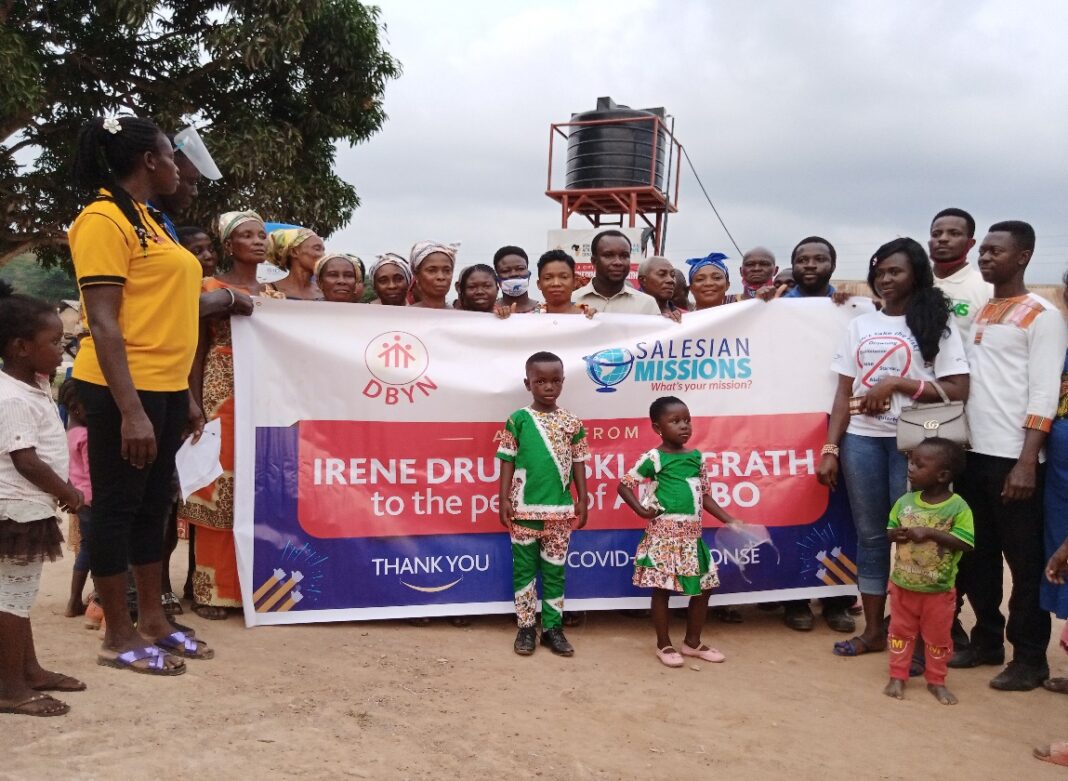Close to 4,000 people living in four villages in the Bono region of Ghana have access to clean water thanks to donor funding from Salesian Missions, the U.S. development arm of the Salesians of Don Bosco.
The project, part of the Salesian Missions “Clean Water Initiative,” provided new boreholes, pumps and water towers in the villages of Nsapo, Teneso Boffour, Mantukwa and Yawmiri.
Water remains one of the main challenges in the Bono region. Access to the nearest available water sources is several miles from these villages.
The farmers who live in the region depend on stream water for all their needs and have to share it with grazing animals. The health and social implications of utilizing this water are having devastating effects on the community.
On behalf of the four communities, Mantukwa, the committee chairperson said, “We had hoped for nothing of this nature but what was provided is beyond our imagination. Since COVID-19, we have been told to wash our hands regularly. It seems so weird to most in a situation of regularizing hand-washing, while even having one drink of water exists in our dreams. With this precious gift, we think that you are not only giving us drinking water but also helping us to survive the COVID-19 pandemic. We are grateful and may God bless everyone involved. I tell you, we are very happy.”
U.N.-Water estimates that worldwide 2.2 billion people are living without access to safe water. One in four primary schools has no drinking water service, with students using unprotected water sources or going thirsty.
In addition, U.N.-Water notes that more than 700 children under age 5 die every day from diarrheal disease linked to unsafe water and poor sanitation.
In 2021, more than 3.57 million people in Ghana lived in extreme poverty, with the majority in rural areas. Those living on less than $1.90 a day in rural regions reached nearly 3.3 million, while 278,000 extremely poor people were located in urban areas.
Rural poverty remains widespread in the dry savannah region that covers roughly two thirds of Ghana’s northern territory. Small-scale farms suffer from a lack of infrastructure and equipment, both of which are needed to shift from subsistence farming to more modern commercial farming which would yield greater incomes and a chance to escape poverty.



